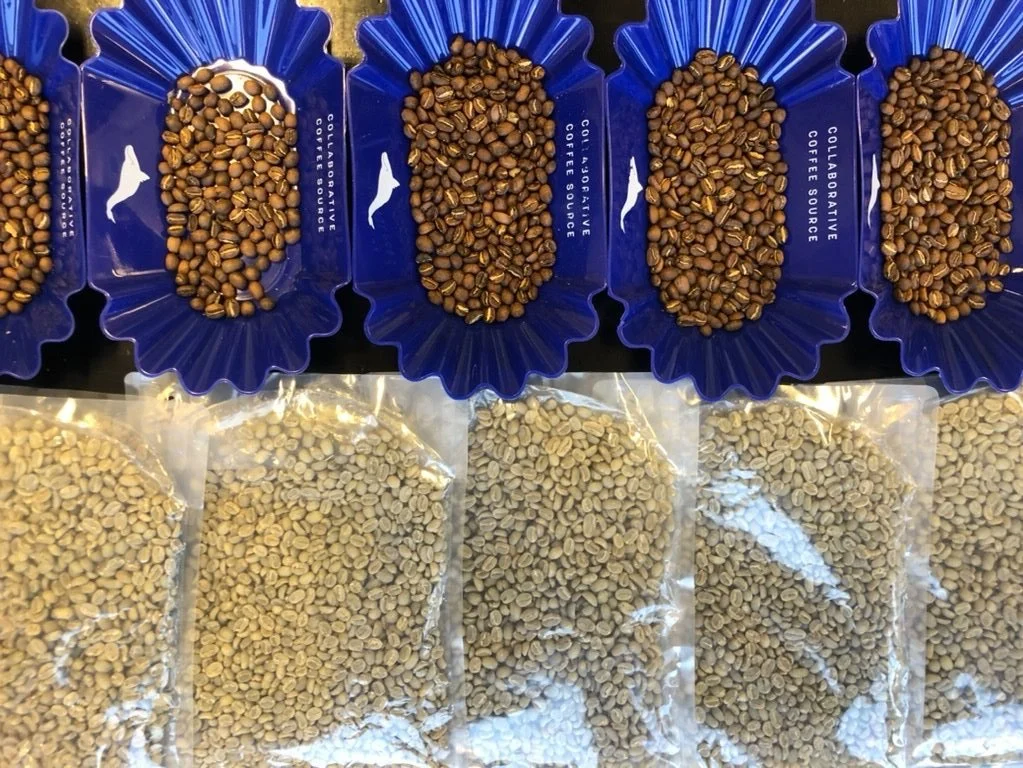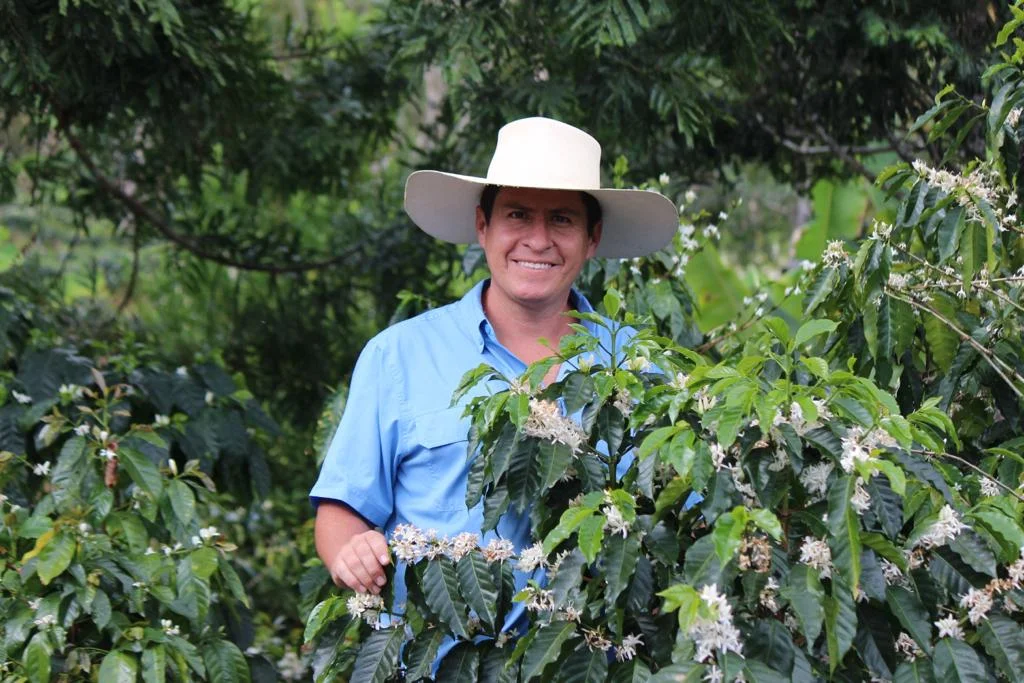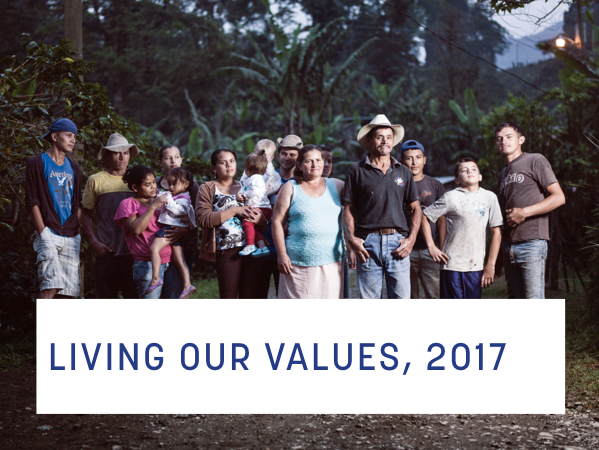The first CCS Cup Learn & Share event of the year was last Thursday, Feb 16, and we were joined by roasters and baristas from Russia, Romania, Japan and Norway. With the help of special guests Rory Rosenberg and Lise Marie Rømo, the team presented two innovative projects by our partners at origin, Long Miles Coffee Project from Burundi and La Palma y El Tucán from Colombia.
These events are so much more than just a cupping. They include discussion, information and presentations, a chance to understand the context of the coffees and the people behind them.
Barista Rory Rosenberg presenting his experience in Burundi with Long Miles Coffee Project.
Burundi coffee producers work largely on nano-lots, often with as few as 500 trees. Ben and Kristy Carlson recognised the potential of this country to produce specialty coffee, and the economic benefit it could bring to these farmers' lives. They moved their entire family to Bujumbura, Burundi to start the Long Miles Coffee Project, and built two beautiful washing stations that process cherries from over 3000 neighboring families.
Rory Rosenberg of Oslo Cold Brew won the Norwegian Barista Championship in 2017 with coffee from Long Miles, and he visited their washing stations and farms to see first hand the work they are doing in Burundi. He talked about the innovative agricultural extension programme Long Miles have implemented, sending a team of Coffee Scouts out to farms to teach farmers best coffee cultivation practices, but most importantly, teaching them how to manually eradicate the dreaded antestia bug, the cause of potato defect.
Yusho, head roaster from Fuglen, Japan.
Our second cupping was of La Palma y El Tucán from Colombia who have several projects that are changing the face of specialty coffee in Colombia. Barista Lise Marie Rømo of, our sister company Kaffa, spoke of her experience competing with the LPET coffee and visiting their farm in Cundinamarca, Colombia. She described the company's team of trained coffee pickers they send to neighboring farms during the coffee harvest. The women pickers paint their nails a specific red so they can easily identify the ripest cherries on the tree. Sixty trucks transport the picked cherries to the La Palma y El Tucán farm where they are processed using innovative methods including Acetic, Natural and Lactic. Also on the table were the LPET Heroes Series, special varieties including Sidra and Gesha that are grown on their own farm and processed to achieve the most delicious and interesting cups.
We were so honored to be joined by Origo Coffee from Romania, Tasty Coffee from Russia, Nord from Norway, Fuglen from Japan and Norway and other baristas and upcoming roasters. We are grateful you made the trip to Oslo to contribute, share, taste and collaborate.
Our second container of Burundi coffees will arrive in Europe and the US in the next week or two, and coffees from La Palma y El Tucán are already in Europe. See our full offer list for details.
Would you like to join us for the next Cup, Learn & Share? Join our mailing list on our homepage to stay up to date with events and happenings at CCS.
At the cupping table, Nico from CCS and Mihai from Origo Coffee, Romania.













